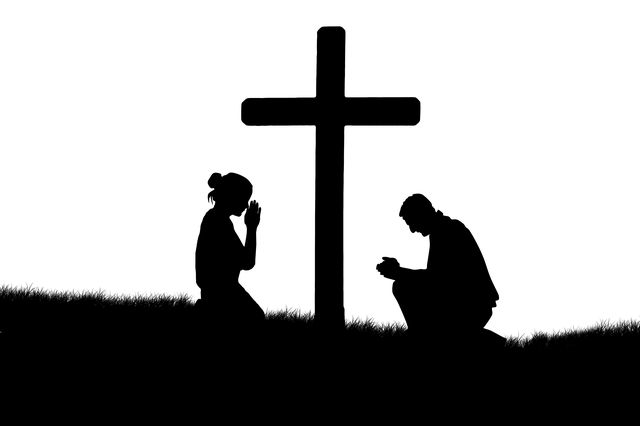I just counted the books in the prayer section on my book shelf and I have over 25 of them. I’m pretty sure I have read all of them, and would think I’d be much better at prayer than I am. The title of one of the books, The Struggle of Prayer by Donald G. Bloesch, probably describes a lot of us in terms of our practice of prayer. It certainly does me.
I can relate to Professor W. David O. Taylor’s assessment, “My own prayer life comes and goes. At times I have prayed faithfully every morning before starting the day’s work. At other times I have managed only tired prayers at the end of the day, and they often have not been very good prayers. At still other times I have found myself without prayer, or, more truthfully, without any desire to pray.”
I want to pray, and I want to pray regularly, but that is a challenge for me. After all these years I have still not settled into a daily and consistent routine of prayer. I think Anthony Delaney’s observation that “we pray a lot more when we are trouble than when everything’s going well” is spot on. And I think he’s right because what he says is true for me.
The Bible says a lot of about prayer as well as gives us a lot of examples of prayer. Jesus clearly expects us to pray as three times in the Sermon on the Mount (Matthew 6:5-7) he tells us “when you pray . . .” what to do and what not to do. In verses 9-13 he gives us a model to follow. In his final instructions to the Thessalonians in his first letter the Apostle Paul tells them “pray continually” (I Thessalonians 5:17).
Pastor and author John Starke encourages me with his suggestion that “the Bible imagines prayer to be a very ordinary thing for very ordinary people.” (In other words, you don’t have to be a spiritual giant to pray.) And then he convicts me with his observation that “It’s not an overstatement to say that the most transformative thing you can do is to begin to spend unhurried time with God on a regular basis for the rest of your life.”
Professor Taylor’s definition of prayer also encourages me: “Prayer is a funny thing, of course, it is about talking to God and listening to God. In practice, prayer is anything but simple.” I think praying can be simple, but listening to God in prayer for me is more challenging.
I think for many who pray, what can be frustrating is what we consider no response from God. With simple honesty, in one of his books Scot McKnight notes “we lay ourselves before God and sometimes we get what we want and sometimes we don’t.” As I have heard many believers say, God sometimes says “yes,” sometimes he says “no,” and sometimes he says “wait.” It’s the “no” answer and the “wait” answer that frustrates many who pray.
I would not charge anyone whose prayer answers were “no” or “wait” of being guilty of his warning, but Pastor Dustin Crowe’s words are worth our consideration, “If honest, many of us pray self-centered, self-absorbed, selfish prayers that sound more like ‘my kingdom come, my will be done’ than ‘thy kingdom come, thy will be done.”
In his book Letters to Malcolm, Chiefly on Prayer C.S. Lewis makes a powerful point. He says the clearest asking prayer in the Bible is Jesus’ request in the Garden of Gethsemane, “Father, if you are willing, take this cup from me; yet not my will, but yours be done” (Luke 22:42). Lewis writes, “He asked, but did not get what he asked for. But he asked with a reservation—‘nevertheless, not my will but thine.’ This makes an enormous difference.”
I’m thinking the challenge and the frustration of prayer are both real, but my prayer life could be much more satisfying if I would follow Jesus’ example and ask with the reservation he did.
Feel free to leave a comment below and/or share this post on Facebook.
Image by <a href=”https://pixabay.com/users/geralt-9301/?utm_source=link-attribution&utm_medium=referral&utm_campaign=image&utm_content=4433377″>Gerd Altmann</a> from <a href=”https://pixabay.com/?utm_source=link-attribution&utm_medium=referral&utm_campaign=image&utm_content=4433377″>Pixabay</a>

Bob
Very good piece.
Thank you.
John
Sent from my iPhone
>
LikeLiked by 1 person
Bob, thanks for sharing these thoughts on prayer! I have enjoyed reading your blogs, thankful for your insights.
Phil Arnold
LikeLiked by 1 person
Really great thoughts on prayer, Bob. I concur and say AMEN!!
LikeLiked by 1 person
Appreciated this honest post! The quote from David O. Taylor was especially encouraging.
LikeLike